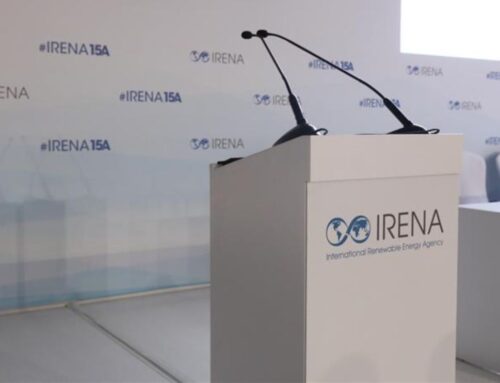Minnesota’s clean energy is reliable, affordable and resilient
April 25, 2025
Minnesota doesn’t just talk about clean energy; we deliver results. The latest data shows we’re ahead of the curve and setting the pace for the rest of the Midwest.
The newly released 2025 Minnesota Energy Factsheet, produced by Clean Energy Economy MN and the Business Council for Sustainable Energy, offers a clear snapshot of how our state’s energy policies are paying off. With electricity demand expected to surge, fueled by artificial intelligence, data centers, and domestic manufacturing, Minnesota is showing how to meet that challenge with a reliable, affordable, and resilient clean energy system.
A foundation built on performance, not promises
For the fifth year in a row, more than half of Minnesota’s electricity came from zero-carbon sources, including renewables and nuclear, well above the national average of 42%. In 2024, zero-carbon sources made up 53% of Minnesota’s energy mix. In 2024, coal generation declined to an all-time low of 20% of Minnesota’s energy mix and is being displaced by increased generation from natural gas and renewables.
These results aren’t the result of ideology. It results from sustained, smart policies and investments delivering real-world benefits. Carbon emissions from the state’s power sector fell another 4% last year, putting us 52% below 2005 levels, far ahead of the U.S. average reduction of 38%.
Clean energy and economic growth aren’t at odds in Minnesota; they work together.
Strengthening energy independence and security
As the country experiences disrupted supply chains and transitions to an America-first mentality, Minnesota is reducing its reliance on out-of-state electricity. In 2024, only 11% of the state’s electricity came from imports, down from 13% the year prior. That means more energy is produced and consumed at home, keeping dollars circulating in local economies, mitigating geopolitical risks, and improving the efficiency of our electricity grid.
This progress comes as the country braces for unprecedented growth in electricity demand. According to S&P Global Commodity Insights, U.S. demand could rise by 35% to 50% by 2040. Meeting that growth will require every available energy solution. Minnesota is already proving what works.
Renewables are rising — and they’re reliable
One-third of Minnesota’s electricity came from renewable sources last year. The state added 388 megawatts of solar capacity, a 35% increase over 2023. Over the past five years, 99% of new power generation in Minnesota has come from renewable sources. These additions are low-cost, flexible, and the quickest to deploy.
National trends echo this momentum. In 2024, U.S. companies signed a record 183 clean energy deals, totaling 28 gigawatts of new capacity. The United States also saw increased market demand for clean fuels, including renewable natural gas and sustainable aviation fuel. These investments reflect a growing recognition that renewables and storage are central to meeting demand and maintaining reliability.
Efficiency drives affordability
Minnesota continues to be a leader in energy efficiency — ranked 10th nationally and first in the Midwest in 2024. Our energy productivity has improved by 37% since 2001, with a 9% gain in the last five years alone.
Even as prices rise across the country, Minnesota is keeping electricity affordable. The state’s average retail rate was 12.36 cents per kilowatt-hour in 2024, below the national average of 12.99 cents. Strategic investments and technological innovation in energy efficiency continue to reduce energy waste while saving businesses and households money.

Efficiency programs under the ECO Act save Minnesotans hundreds of millions of dollars annually, showing how well-implemented clean energy policies are also financially responsible.
Laying the groundwork for what’s next
Building on the success of technologies like wind and solar, demand continues to grow for new and emerging energy technologies across all economic sectors. Minnesota is actively investing in the future: scaling up infrastructure for electric vehicles and sustainable aviation fuel, integrating new solutions for heating and cooling homes and buildings, and preparing to lead in clean hydrogen. As of late 2024, more than 65,000 EVs were on Minnesota roads — our highest number yet — with charging infrastructure expanding to support further growth.
This forward-looking approach positions Minnesota to lead in sectors that will define the next era of American energy.
Now is not the time to pull back
Minnesota’s story is one of progress through pragmatic policy. However, continued success, here and across the country, depends on stable, forward-thinking policies at both the state and federal levels.

Congress must protect the bipartisan energy tax credits that fuel private investment, reduce energy costs, and create jobs. These incentives provide the certainty businesses need to plan long-term, deploy capital, and bring new energy projects online. Weakening or reversing them would threaten energy reliability, affordability, and American competitiveness.
State and federal energy policy should match the urgency and opportunity of this moment. With electricity demand rising and grid capacity under pressure, we need to move forward faster, not slower. That means streamlining permitting, modernizing infrastructure, and maintaining tax policies that enable the efficient deployment of innovative clean energy solutions.
Minnesota is the blueprint
The numbers speak for themselves: increased energy independence, affordable electricity, steady economic growth, and lower emissions. Minnesota is delivering and offering the rest of the country a roadmap for what success looks like.
We’re not just keeping the lights on. We’re lighting the way forward.
Gregg Mast is the executive director of Clean Energy Economy MN and Lisa Jacobson is the president of the Business Council for Sustainable Energy.
Search
RECENT PRESS RELEASES
Related Post



